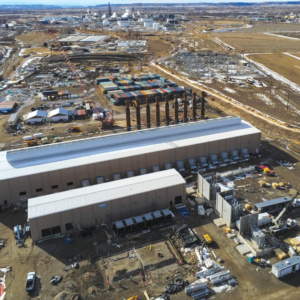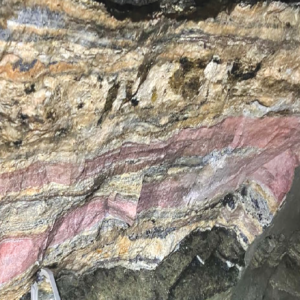Billings’ very own Wayne Nelson is among those recognized as the Small Business Administration’s business people of the year.
Montana District Director, Brent Donnelly, has announced Montana’s 2023 Small Business Persons of the Year and other Montana Small Business award winners.
The award for Small Business Champion goes to Wayne Nelson, readily recognized by most Billings business people for his 25 years providing business expertise and support for entrepreneurs, as a leader with Stockman Bank.
Neli and Dimitar Nikolov, owners of The Corral Burger and Lodge in Gardiner, have been named as the Small Business Persons of the year.
Shellie’s Country Café, Inc., Helena, owned by Shellie Mitchell and Aimee Myles, has been named Woman Owned Small Business of the Year.
Willie’s Distillery, Inc. in Ennis was named Veteran Owned Small Business of the Year, recognizing Willie Blazer and his late wife, Robin, for their entrepreneurial efforts.
SBA Young Entrepreneurs of the Year are Asia Caluori and Dustin Anglen owners of Pearl Boba Tea Missoula, MT
Penta Machine Company, Bozeman, owned by Michelle and Matthew Hertel have been named Small Business Exporter of the Year, and they also won the award as Rocky Mountain Region VIII Exporter of the Year
“This year’s Montana SBA award winners are not only a testament to the grit and resiliency of Montana small businesses,” said Donnelly, “but also an inspiration as they highlight the opportunities entrepreneurship affords to make tremendous impacts to our families and our Montana communities.”
Each year during National Small Business Week , stars of the business community at state, regional and national levels , are recognized. “More than half of all Americans either own or work for a small business, and they create nearly 70 percent of net new jobs in the U.S.” said SBA Regional Administrator Aikta Marcoulier, “I congratulate each of our Small Business Week award winners for their pursuit to create equality in the workplace, advance innovation, and increase America’s global competitiveness.”
National Small Business Week will be observed April 30 – May 6, 2023. State Small Business Persons of the Year winners will be formally recognized on May 1 in Washington DC and all winners will be honored locally during the week of May 1. Details to be announced at a later date.
The event will celebrate small businesses, provide critical resources and recognize SBA partners for their support in providing startups and small business owners with counseling and advice, skills development, disaster preparedness and recovery, as well as access to capital, government contracting, and market opportunities to start, grow and build resilient businesses.
Wayne Nelson, Stockman Bank
As Small Business Champion, Nelson is being recognized for his very active role in community leadership with service and economic development organizations. After 25 years with Stockman Bank, 15 of those years leading the Billings market as President, Nelson now serves as Senior Banking Executive. Nelson has served on the Board of Directors for Big Sky Economic Development for several terms and has referred clients to many of the programs hosted by BSED including, SBA, VBOC, SBDC, the Rock 31 Entrepreneurship program and PTAC, where they received technical assistance and access to financing.
The Corral Burger and Lodge, Gardiner
The Corral Burger and Lodge is the longest standing business in Gardiner, Montana, the only year-round entrance to Yellowstone National Park. The business was established in 1960 and was previously known as Helen’s Burgers. “The little burger joint has always been famous for its big juicy burgers made from a variety of meats.”
Neli and Dimitar Nikolov took over ownership of the business in 2015 and grew its popularity by continuing Helen’s legacy. In 2017, USA Today voted The Corral as Best ELK Burger in Montana. The Nikolovs take pride in finding the best locally raised elk, buffalo and 100% grass-fed beef, fresh produce, and great ice cream. When the pandemic interrupted the supply chain and increased prices, Neli and Dimitar pivoted and began growing their own vegetables to maintain their focus on using local products.
Operating a successful restaurant in a rural tourist town (pop. 833) presents unique challenges, especially when it comes to housing shortages and recruiting employees. To tackle this challenge, the Nikolovs expanded to provide lodging for their guests and employees. They were able to add six lodging units to an already existing house for employees and in June 2021, Corral Villas was built and opened its doors to guests for short-term rentals. Located in the heart of Gardiner, just a building down from the restaurant, Corral Villas offers the ultimate Yellowstone getaway. Open year-round, it is the perfect headquarters to launch a day of rafting, fly fishing, hiking, biking, hunting, cross-country skiing, or any other endeavor that calls your name while visiting and exploring America’s first National Park!
Over a three-year period during peak tourist season, the number of employees grew from 15 to 40. However, the business experienced tragedy in June 2022 due to historic flooding that closed the north entrance to Yellowstone National Park, and stopped the flow of tourism through Gardiner. Local businesses rely on tourism summer traffic for a bulk of their annual revenue, and budget to make it through the shoulder seasons and winter. Businesses like The Corral Burger and Lodge were forced to reduce staffing and work hard to minimize expenses. Fortunately, the most heavily damaged entrance to the park, located in Gardiner, re-opened four months later. Business has resumed in Gardiner and Yellowstone, and visitors are once again able to continue enjoying the big juicy burgers and shakes they’ve come to know and love.
Shellie’s Country Café, Inc., Helena
Shellie Mitchell and Aimee Myles were both raised in the town in which they now run their business. In 2007, after over 30 years in the restaurant business, Shellie took a leap of faith, borrowing $800 from her son to open a small cafe. With several family members in tow, Shellie began the painstaking process of turning a true down-home start up into an ever growing operation. Her daughter, Aimee, began working in the restaurant at age 15, and after spending over half her life helping to grow Shellie’s Country Cafe, she became part owner. Their values revolve around creating a family atmosphere, being committed to their staff, and giving the community somewhere to gather with friends and family. Driving the motto “Nothing Fancy, Just Good Food!”, the Shellie’s Country Cafe family of dedicated members, have taken this small hometown vision and made it a staple of the community they continue to serve.
Willie’s Distillery, Inc., Ennis
Willie’s Distillery started in 2010 by Willie Blazer and his late wife Robin. Willie’s Distillery is a craft distillery located on the Madison River in Ennis, that specializes in products such as bourbon, vodka, blended whiskey, and cream liqueurs. Products are distributed to all 50 states, but the Rocky Mountain west region, primarily Montana, Idaho and Wyoming, is their most noteworthy market. What started with only two employees in 2010, has since grown to a team of 34 and is one of the most recognizable veteran-owned businesses in Montana. The distillery is one of the largest distilleries in Montana, is a destination and a gathering place for veterans, service members, and whiskey drinkers, and known as a place to see a friendly face, meet other service members and catch a good time in Montana.
Asia Caluori & Dustin Anglen – Pearl Boba Tea Missoula
Prior to attending the University of Montana, Asia Caluori taught English in Vietnam where she discovered her love for bubble tea. After college, Asia remained in Missoula working in the tech space, but always had a dream of bringing her love of boba to Missoula. Dustin studied international business at UC Santa Barabara and became a technology instructor out of college. This job required international travel with long and frequent visits to East and South East Asia where Dustin frequently indulged in boba. After a backpacking trip in Yellowstone, he convinced Asia the pair would be able to pull off a boba farmer’s market stand in Missoula. After selling 500% more than targeted, the owners quickly recognized a need in the community, hired staff, and opened a temporary location in downtown Missoula. In October 2021, the duo opened their first permanent location in the University of Montana’s University Center. Eight months later, they opened their second full-time operation in downtown Missoula. In 2022, they grew to 20 employees, served 15,500+ customers and sold 53,000+ drinks in that year alone.
Penta Machine Company, Bozeman
Michelle and Matthew Hertel moved to Washington state together after college where Michelle worked as a mechanical engineer for Boeing and Matt worked as a machinist for Electroimpact. While they enjoyed living and working there, they knew they wanted to eventually return to Montana. This desire inspired them to begin designing a CNC mill together that they hoped to eventually sell. Over three years they worked evenings and weekends to develop their initial prototype before leaving their jobs and returning to Montana to launch Penta Machine Company. It took them another year and a half to bring their product to market with a successful Kickstarter Campaign in 2015. The company began focusing on exporting in 2019, and saw a 48% increase in revenues to over $3,000,000. This has allowed them to continue developing new products in house while maintaining profitability. Penta Machine Company now sells their products nationally as well as internationally in South America, Europe, Asia, Africa and Australia.





